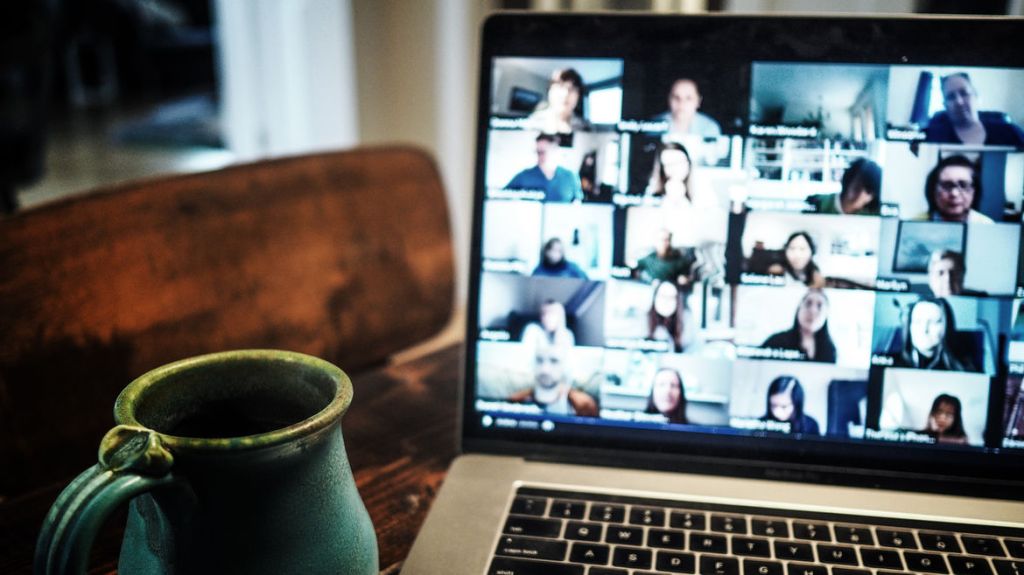
It is four in the afternoon on a Thursday, time for the weekly Zoom call my mother waits for in her nursing home. This is the time of day that sundowning can likely happen—when patients lose track of the world, lose track of themselves. Their minds have gone away with the sun, confusing day and night.
I log in to the same message every week: Recurring Meeting for Matilde Bolton—Hebrew Senior Life—Three East Berenson. It’s as if my mother stars in a local cable television show. I wait for the host to let us in; the host is the social worker whom my mother can’t stand. On a full week, there are eight of us who anchor six cubes—three middle-aged children and one son-in-law, along with four grandchildren, are suspended in space, waiting to enter.
As if a wand has been waved, we suddenly appear on the screen. We’re an oddball crew of cheerleaders for my mother, but she does not want to be cheered up or placated. She wants to be sprung from the awful food and her fellow residents who, she complains, drool and smell.
“No me gustan viejos,” she says in her native Spanish. She doesn’t like old people. She doesn’t like Zoom much either. It disorients her. Are we real, or has she imagined us crowding on-screen for this bizarre recording? The word Zoom in this context is new to my mother. In another iteration, it implied quickness, the smooth glide of going somewhere fast—things she can no longer do.
Including my mother, we inhabit seven squares. At the beginning of each Zoom session, my mother asks who we are. The grandchildren call her Abu, short for Abuela—a moniker my daughter invented as a toddler when she could not pronounce Abuela.
“Abu, you’re silly,” they’ll playfully say to her.
The comment makes my mother either furious or giggly. When she laughs now, her voice is as scratched up as the old vinyl records of Cuban dance music to which we used to listen. That same voice is still as frightening as it ever was when she’s angry.
We try mightily to engage my mother on these calls by asking her what she had for lunch. My mother scrunches up her face and says the same thing each time: “Porquería! Basura!” Junk! Garbage! If it’s a bad week, she’ll go on to stamp out her entire life with those same words. It was the same when I was a kid. Her life was mierda.
My mother is agitated when everyone speaks at once or, worse yet, if we have side conversations. She’s sure that we’re talking about her or deliberately confusing her. “Sha, sha, sha,” she’ll scream when she’s had enough. “Secreticos, secreticos, secreticos!” She thinks that we’re telling little secrets about her, secreticos that are planted everywhere like mines. The sun is neither up nor down. Her paranoia is a throwback to those years she pulled my hair and accused me of talking basura behind her back: “I can hear you wherever you are in the world.”
There are weeks when my mother is visibly delighted to be on Zoom. Those are the times she sees her mother, my abuela, inhabiting a Zoom cubicle. “Look, there’s my mother,” she says, waving and smiling. Abuela has been dead for over forty years. Over text, my sister and I debate whether to tell my mother this hard, bedrock fact. “Is it dementia?” my sister asks. I type back that I think Mom spends too much time alone in her room. “It’s a by-product of the Covid-19 lockdown—a hallucination,” I write back.
“Look at Abuela,” my mother says. “Mira, look, my mother is smiling and waving back at me. ‘Hola, Mamá!’ Can you see her?”
I’m the oldest of my mother’s three children, and I know it will fall to me to tell her that her mother is dead—the ultimate secretico unleashed, darkening my mother’s world like a solar eclipse.
“I know she’s dead.” My mother is insulted that I am stating the obvious to her. “I’m not stupid.”
To read the rest of this essay go to the Catapult website https://catapult.co/stories/the-ghost-on-the-zoom-call-mothers-pandemic-sundowning-judy-bolton-fasman

